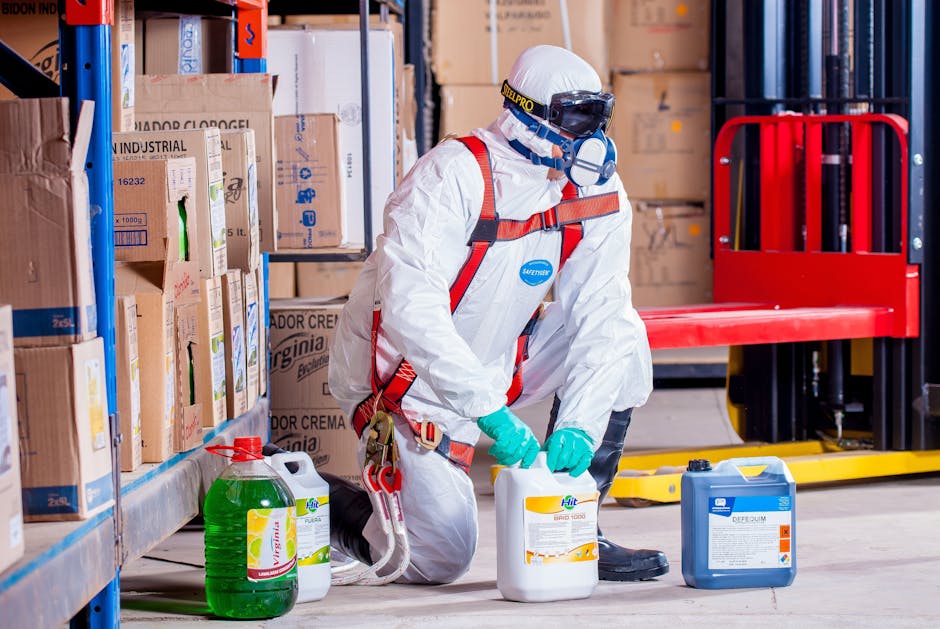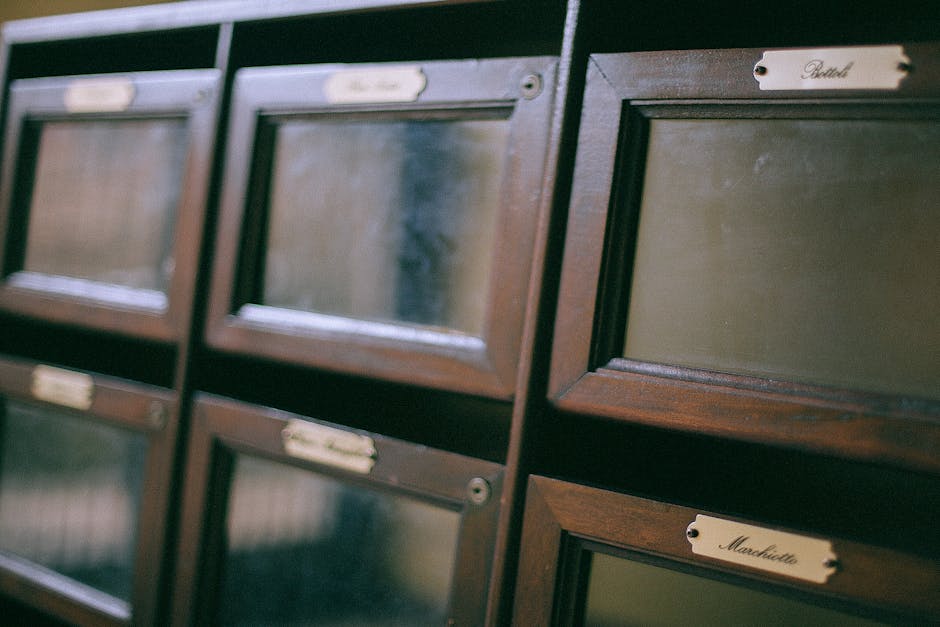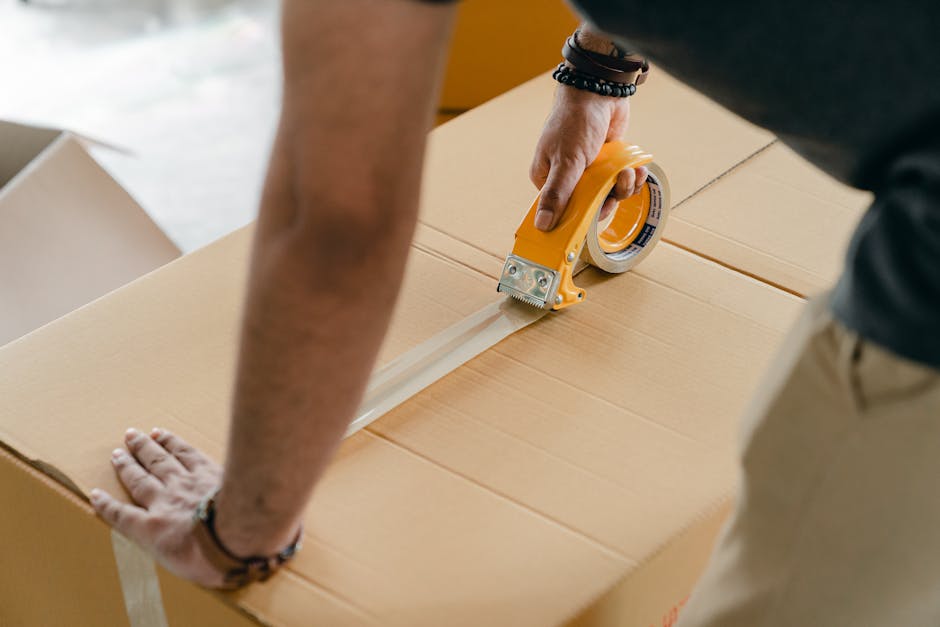How To Store Your Will Safely And Securely
In a world where electronic communication has become the norm, some may consider storing a physical document like a will an antiquated practise. However, ensuring the safe and secure storage of your will remains crucial in safeguarding your final wishes.
While the methods of will storage have evolved over time, traditional options such as safety deposit boxes or home safes still offer reliable protection. Alternatively, utilising legal professionals or estate planning services can provide added security and peace of mind.
Moreover, digital storage solutions have emerged as a convenient option for those seeking accessibility and ease of retrieval.
Regardless of the chosen method, it is essential to regularly update and review your will to reflect any changes in circumstances or preferences accurately.
This article explores various approaches to storing your will safely and securely while considering the needs and desires of an audience seeking comprehensive understanding on this matter.
Key Takeaways
- Storing a physical will is still important in the digital age
- Traditional options: safety deposit boxes, home safes
- Digital storage solutions offer convenience and ease of retrieval
- Regularly updating and reviewing your will is essential
Traditional Methods of Will Storage

Traditional methods of will storage involve physical documents being placed in secure locations such as bank vaults or fireproof safes, ensuring their protection from potential damage or loss. These methods prioritise document protection by providing a controlled environment that minimises the risk of theft, fire, or natural disasters.
Many banks offer will storage services as part of their safety deposit box offerings, which are typically kept in highly secure areas within the bank. Safety deposit boxes are designed to be resistant to fire and water damage and can only be accessed with proper identification and authorisation. Will storage services provided by banks often include additional security measures such as 24/7 surveillance, alarm systems, and restricted access to authorised personnel only. This ensures that the stored documents remain safe and confidential at all times. Bank employees are trained in handling sensitive materials like wills and follow strict protocols to maintain the confidentiality of the contents.
By using traditional methods of will storage like safety deposit boxes, individuals can have peace of mind knowing that their important legal documents are protected from common risks like theft or destruction due to accidents or natural calamities. These methods offer a reliable solution for preserving one’s last wishes securely.
Moving on to safety deposit boxes, these secured containers provide an extra layer of protection for important documents such as wills due to their enhanced security features and controlled access policies without compromising accessibility when needed.
Safety Deposit Boxes

Modern options for the storage of important legal documents, such as wills, include utilising safety deposit boxes. Safety deposit boxes are secure storage units that are typically available at banks or financial institutions. They offer an additional layer of protection against theft, fire, and natural disasters compared to traditional methods of will storage.
There are alternatives to safety deposit box storage that individuals may consider. One alternative is storing the will at home in a safe or lock box. This option provides easy access to the document but may not offer the same level of security as a safety deposit box.
Another alternative is using digital storage solutions, such as cloud-based platforms or encrypted USB drives. While these options provide convenience and accessibility, they also come with their own set of risks regarding data breaches and cyber attacks.
When considering the pros and cons of safety deposit box storage for wills, there are several factors to take into account. The main advantage is the high level of security provided by these boxes, which are often located within heavily guarded bank vaults. Additionally, safety deposit boxes protect documents from damage caused by fire or flooding.
On the other hand, there are some drawbacks to using safety deposit boxes for will storage. Firstly, they may not be easily accessible during non-banking hours or emergencies when immediate access is required. Secondly, there can be costs associated with renting a safety deposit box on an annual basis.
While safety deposit boxes offer enhanced security compared to traditional methods of will storage, it is important to weigh the pros and cons before making a decision. Alternatives such as home safes and lock boxes should also be considered based on individual preferences and circumstances without compromising on document security. It is important to weigh the pros and cons of these alternatives as they may offer convenience and accessibility, but may not provide the same level of protection against theft, fire, or natural disasters as specialised will storage services.
Home Safes and Lock Boxes

Home safes and lock boxes provide individuals with a sense of reassurance knowing that their important legal documents are protected within the confines of their own homes. These secure storage options offer a convenient and accessible way to safeguard valuable items such as wills, passports, birth certificates, and other important paperwork.
Here are five key advantages of using home safes and lock boxes:
-
Security: Home safes and lock boxes are designed to withstand theft attempts. They often come with sturdy locks, solid construction materials like steel, and may even be fireproof or waterproof.
-
Accessibility: Unlike safety deposit boxes at banks, which have limited access hours or require appointments for retrieval, home safes and lock boxes allow individuals to access their documents whenever they need them.
-
Privacy: With home safes and lock boxes, there is no need to involve third parties in storing your will or other personal documents. This ensures confidentiality and minimises the risk of unauthorised access.
-
Cost-effectiveness: Compared to renting a safety deposit box at a bank on an ongoing basis, purchasing a one-time investment in a home safe or lock box can be more affordable in the long run.
-
Peace of mind: Knowing that your will is safely stored within your own residence can bring peace of mind. It eliminates concerns about misplacement or loss while still providing easy access when required.
When it comes to estate planning, having secure storage for your will is crucial. However, it’s also essential to consider additional steps such as using a lawyer or estate planning service. Transitioning into this next section provides insight into further measures individuals can take for comprehensive estate planning without repeating the word ‘step.’
Using a Lawyer or Estate Planning Service

Engaging the expertise of a professional lawyer or estate planning service can provide individuals with invaluable guidance and assistance in ensuring the comprehensive and meticulous management of their estate. These professionals possess extensive knowledge and experience in wills and estate planning, allowing them to navigate complex legal requirements and tailor solutions to meet individual needs.
One advantage of using a lawyer or estate planning service is their ability to provide personalised advice based on an individual’s unique circumstances. They can assess the complexity of one’s assets, family situation, and future goals to create a will that reflects their intentions accurately. In addition, these professionals can offer insights into potential issues or challenges that may arise during the distribution process, minimising the likelihood of disputes amongst beneficiaries.
To showcase the differences between DIY options and professional services, consider the following table:
| Aspect | DIY Options | Lawyer/Estate Planning Service |
|---|---|---|
| Expertise | Limited understanding of legal complexities | Extensive knowledge of wills and estate planning |
| Legal Compliance | Risk of overlooking important legal requirements | Ensures compliance with all necessary legal obligations |
| Comprehensive | May miss crucial elements | Thorough examination of all aspects for a comprehensive solution |
| Peace of Mind | Potential uncertainty regarding adequacy or validity | Confidence in legally sound document |
While there may be costs associated with engaging a lawyer or estate planning service, such as lawyer fees, these expenses are often justified by the peace of mind gained from knowing that your will is secure and legally binding. Moreover, considering the potential complications that can arise from inadequate self-draughted documents or mistakes made during execution, seeking professional assistance becomes even more valuable.
Transitioning into digital storage solutions, it is essential to explore alternative methods for securely storing one’s will.
Digital Storage Solutions

One avenue for securely preserving testamentary documents involves utilising digital storage solutions, which serve as a virtual vault for individuals to safeguard their estate plans. These solutions offer numerous benefits, such as the ability to access and manage documents from anywhere with an internet connexion.
One popular option is cloud storage, which allows users to upload and store their wills on remote servers maintained by third-party providers. This ensures that the documents are protected against physical damage or loss, such as fire or theft.
To further enhance security, digital storage solutions employ advanced encryption methods. Encryption converts the contents of the will into an unreadable format that can only be deciphered with a unique key. This means that even if unauthorised individuals gain access to the stored files, they would not be able to read or modify them without the encryption key.
In addition to these features, digital storage solutions often provide additional functionalities that make managing and organising estate plans easier. For example, some platforms allow users to create multiple copies of their wills and designate specific individuals who can access them in case of emergencies or incapacitation. Others offer automatic backup options to ensure that any changes made to the document are saved securely.
By utilising digital storage solutions for storing one’s will, individuals can enjoy peace of mind knowing that their estate plans are safely protected against physical hazards and unauthorised access. However, it is important not only to focus on secure storage but also regularly updating and reviewing your will so that it reflects your current wishes and circumstances.
Regularly Updating and Reviewing Your Will

To ensure the accuracy and relevance of your testamentary documents, it is crucial to regularly review and update your will. Updating frequency may vary depending on individual circumstances, but a general recommendation is to review your will every three to five years, or whenever there are significant life events such as marriage, divorce, birth of children or grandchildren, or acquisition of substantial assets.
Updating your will on a regular basis helps to ensure that it reflects your current wishes and distributes your assets in accordance with your intentions. Failing to update your will may result in unintended consequences and disputes amongst beneficiaries. By reviewing and updating your will periodically, you can ensure that it accurately represents your current financial situation, family dynamics, and personal preferences.
When updating your will, it is important to be aware of legal requirements. Different jurisdictions may have specific rules regarding the execution of a valid will. For example, some jurisdictions require witnesses while others do not. Additionally, changes made to the will must meet certain formalities in order to be legally binding. It is advisable to consult with an attorney who specialises in estate planning or probate law to ensure compliance with these legal requirements.
Regularly reviewing and updating your will is essential for maintaining its accuracy and relevance. The recommended frequency for updates varies depending on individual circumstances but generally occurs every three to five years or when significant life events occur. Adhering to legal requirements during the updating process ensures that the new provisions are valid and enforceable. By taking these steps, you can help prevent unintended consequences and provide peace of mind knowing that your testamentary documents reflect your current wishes.
Frequently Asked Questions
Are there any legal requirements for storing a will?
Legal formalities must be adhered to when storing a will. One important requirement is the notarisation of the document.
Notarising a will involves having it signed in front of a notary public, who verifies the identity of the testator and witnesses the signing process. This step adds an extra layer of authenticity and credibility to the will, making it less susceptible to challenges or disputes in the future.
Therefore, it is crucial to comply with these legal requirements for proper storage of a will.
How can I prevent damage to my will from fire or water?
‘Prevention is better than cure.’
In order to safeguard a will from damage caused by fire or water, certain measures should be taken. Fire protection can be achieved by storing the will in a fire-resistant safe or cabinet. Additionally, using fireproof file folders or envelopes can provide an extra layer of protection.
To prevent water damage, it is advisable to store the will in a waterproof container such as a sealed plastic bag or waterproof safe.
Can I store other important documents along with my will?
When considering the storage of a will, it is important to ensure the safekeeping of other significant documents as well.
Storing one’s will alongside other important documents can provide convenience and efficiency in managing personal affairs.
By utilising secure storage options such as safety deposit boxes, fireproof safes, or digital platforms with strong encryption measures, individuals can protect their will and other essential paperwork from potential damage or loss due to unforeseen circumstances.
What should I do if I want to change or update my will?
The process of changing or updating a will can be likened to the act of renovating a house. Just as one must carefully plan and execute each step in home improvement, so too should individuals approach modifying their wills.
The changing process involves:
- Reviewing the existing document
- Identifying necessary updates
- Making amendments following legal protocols
Updating steps may include:
- Consulting with an attorney
- Gathering relevant information
- Ensuring all changes are properly documented to uphold the validity of the revised will.
Are there any additional precautions I can take to ensure the security of my will?
To ensure the security of your will, additional precautions can be taken.
One option is digital storage, where you can create electronic copies and store them in secure online platforms or encrypted devices.
Another option is to keep a physical copy in a safe deposit box at a bank. This provides protection against loss or damage from fire, theft, or natural disasters.
Both methods offer an extra layer of security for your important legal document.
Conclusion
In conclusion, there are several safe and secure methods for storing your will.
Traditional options such as safety deposit boxes and home safes provide physical protection, while using a lawyer or estate planning service ensures professional handling of your documents.
Additionally, digital storage solutions offer convenience and accessibility.
It is important to regularly update and review your will to ensure its accuracy and reflect any changes in your circumstances.
According to a survey conducted by Caring.com, only 32% of adults in the United States have a will.
This statistic highlights the importance of taking proactive steps to safeguard your will for the benefit of your loved ones.
Contact us to discuss our services now!
